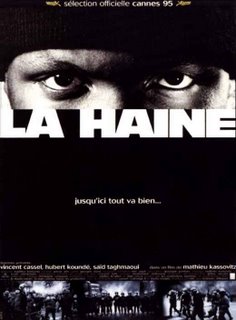
With France gripped by riots for the last 2 weeks, it might seem odd to start looking at language. After all, petrol bombs are petrol bombs and riotous mobs are riotous mobs, aren't they? Well maybe not...
French politician Nicolas Sarkozy has got himself in trouble for describing rioters as "racaille", which has been translated as "scum" or "rabble" in various English newspapers. As a report in The Guardian's newsblog reveals, the term "racaille" has its own etymology and its own history of derogatory connotations. So is Sarkozy fanning the flames of hatred when he uses this word, perhaps suggesting the rioters are lowlife scum who deserve no sympathy? Or could they be seen as disaffected, inner city working class youth whose protests are a last ditch mayday call?
Well again, words can play tricks. First off, are they really from the inner city? The areas affected by rioting (particularly those in Paris) are what are called "banlieus", which translates into English as "suburbs". This has totally different connotations in English: we assume suburbs to be hubs of middle class life, affluent, quiet and probably quite respectable (bar the odd wife-swapping party or alleged Steve McFadden "dogging" incident), not some strife-torn ghetto. This comes down to human geography rather than language, I suppose: British inner cities have historically been the home of generation after generation of migrants from the Hugoenots through to the Jews, Irish, Caribbeans, Indians and Bangladeshis, and now maybe the East European building trades, all of whom move out towards the fringes as they gain prosperity. But in France, the new arrivals have been housed on the edges of society, perhaps literally.
Secondly, are the rioters really working class? Well, if your definition of working class is that people work, then probably not. Figures suggest that up to 40% of the residents of the banlieus are unemployed and - according to the report in today's Guardian - make their money from state benefits, petty crime and drug dealing. Sounds like work of a sort, but not the stereotype of manual labour, the term "working class" usually brings to mind.
While France burns up like something out of La Haine and even La Haine's director Mathieu Kassovitz weighing into the debate in today's Guardian, maybe we should have a look at the language we use to label social groups here in Britain: while one Tory party pretender calls some of you the "wristband generation", you can be sure as hell that other people in his party - and of course more widely across society - are calling you something else, a lot less pleasant.
But of course, how important is language when the real problem is how society is structured and controlled? Do the terms we use to label people simply reflect our attitudes or shape them? And how much does a term like "racaille" contribute to the feelings of resentment of the rioters - who've suffered at the hands of a system that segregates and scapegoats them, and a police force that's notorious for its racism - or simply reflect the attitudes of those disgusted and ashamed by what they see happening to their cities?
Useful for:
ENA1 - Language & Representation

